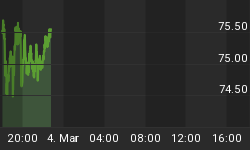As we forecast last month in our Investment Analysis Report, the regional banks have quickly brought about the next round of financial troubles. We expect a large decline in the broader stock market to be the next major issue. The Royal Bank of Scotland, Morgan Stanley, Barclays, and even the Bank of International Settlements (the central bank's central bank) have issued financial storm warnings. We referenced the Bank of International Settlements (BIS) last July in warning of the credit crunch last year. According to the Telegraph, they are now specifically warning of deflation. The BIS states:
"Historians would recall the long recession beginning in 1873, the global downturn that began in the late 1920s, and the Japanese and Asian crises of the early and late 1990s respectively. In each episode, a long period of strong credit growth coincided with an increasingly euphoric upturn in both the real economy and financial markets, followed by an unexpected crisis and extended downturn...The eventual global slowdown could prove to be much greater and longer lasting than would be required to keep inflation under control. This could potentially even lead to deflation, which would evidently be less welcome."
Chief Economist, Bill White, in his departing memo continues:
"It is not impossible that the unwinding of the credit bubble could, after a temporary period of higher inflation, culminate in a deflation that might be hard to manage, all the more so given the high debt levels."
Return of the Bear Market - Fashion Insanity
We noticed the recent theme of a male fashion show in Paris (below on the left). The 'cross gender' fashion is strikingly similar (perhaps purposefully so) to David Bowie's "Aladdin Sane" album cover (below on the right). It was released in 1973.

The title track, Aladdin Sane (a pun on 'A Lad Insane'), was actually named "Aladdin Sane (1913-1938-197?)." Dates representing World War 1, World War 2 and what he thought might mark the start of World War 3 according to wikipedia. Like the 'hyperinflationists' of our day, he got the date right, just the wrong outcome: In January 1973, Nixon signed the Paris Peace Accords ending direct U.S. military involvement in Vietnam. The DJIA fell 40% over the next 2 years.

More follows for Clients and Subscribers...
We are conducting a quick survey to better understand our current online readership. This will allow us to improve The Investment Analysis Report. We appreciate your feedback.
For investors seeking principal protection, the LTA U.S. Treasury Bill Account provides a low cost, simpler option to U.S. Treasury money market fund shares. With the addition of personalized service from a private wealth manager, you will see why our clients have chosen us to assist them in protecting their wealth. If you are interested in a smarter alternative for your cash, please complete our Inquiries form and we will contact you promptly.
At Lamont Trading Advisors, we provide wealth preservation strategies for our clients. For more information, contact us. Our monthly Investment Analysis Report requires a subscription fee of $40 a month. Current subscribers are allowed to freely distribute this report with proper attribution.
***No graph, chart, formula or other device offered can in and of itself be used to make trading decisions. This newsletter should not be construed as personal investment advice. For informational purposes only.















